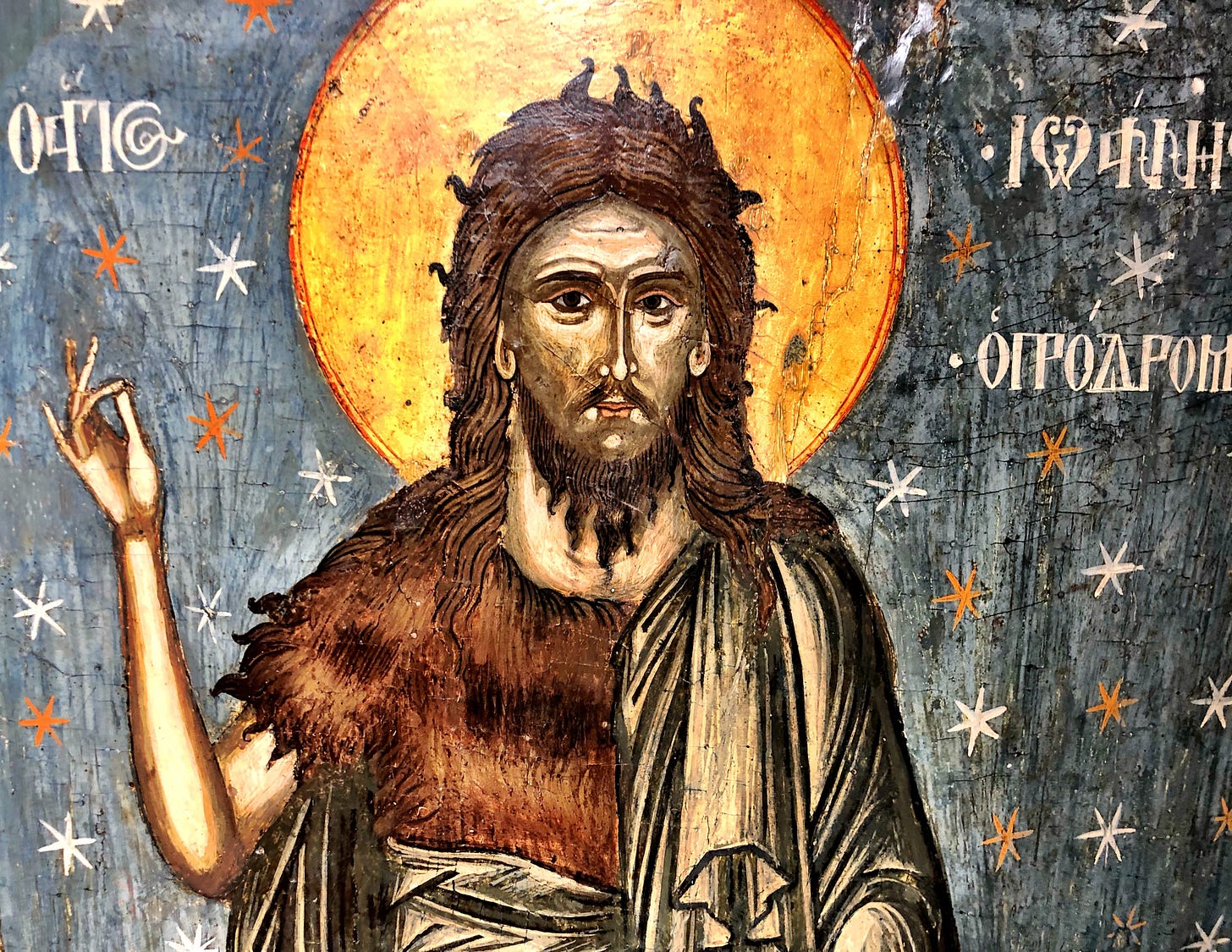John the Baptist, detail from Romanian Icon
It was late and my energy was flagging. The computer screen glowed sickly in the darkness, and I was bitterly regretting leaving my specs up in the library. It was the second podcast interview of the evening and I gawped at the interviewer like a trout plucked gasping from a Dartmoor stream. Night time is not the time to do interviews. But, due to the magical tyranny of the worldwide web, all time zones can be overcome if the interviewee is agreeable. I probably was agreeable when I agreed to do it, millions of years ago, filled with early morning coffee, but come 10pm I was a disagreeable beastie. And the guy had decided to ask me the clincher.
“And what would you say exactly is a myth?” he asked with a broad grin. This had any remaining energy leaving my body like radiator fluid, “And why on earth would we need them?”. After seventeen books on the subject, many thousands of teaching hours, forty tours of mythtelling all over the Western world, you can well imagine how many times I’ve been asked it. I tried to answer, I did. I tried to clear my head, reset the imagination, not trot out anything with the whiff of soundbite about it. It must have been the hour, but I couldn’t quite put an answer together. I couldn’t remember what I thought, funny though that sounds. I must have spouted some vague platitude and shuffled off to bed.
But it’s stayed with me, that moment, and my failure to really be present to it imaginatively. Creative fatigue. So I’m going to have another go, dear reader. And I think my deeper question has to be, “What does myth have to with Christianity?” But before we get there, let’s take some earlier steps together.




